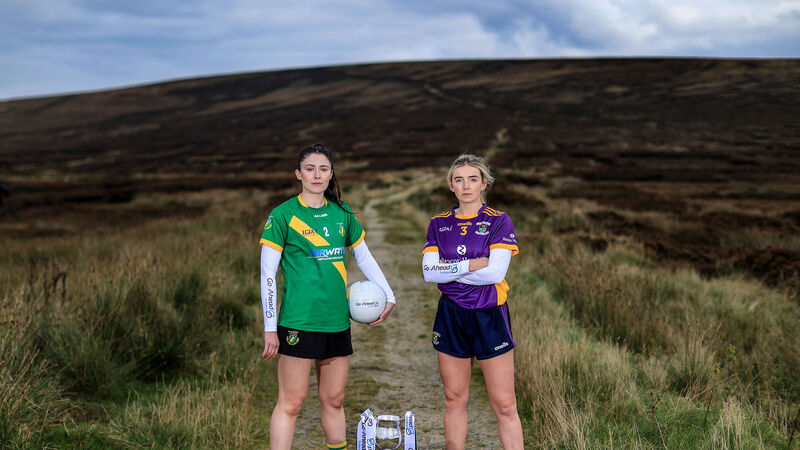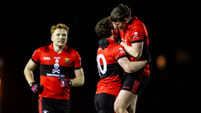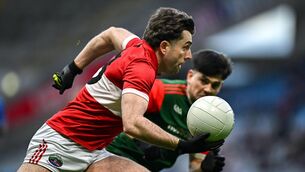Paul Rouse: We must ensure that women don't lose out again in integration process

PROGRESS: Olwen Carey of Thomas Davis and Emer Sweeney of Kilmacud Crokes.
Eimear Ryan wrote a great column this week on the appointment of Mary McAleese as chairperson of the process that is intended to lead to the integration of the GAA, the LGFA and the Camogie Association.
The column ranged across the history of the very name – camogie – and what its origins and status might mean. It also addressed the issue of the naming of Gaelic football as played by women as ‘Ladies football’.












